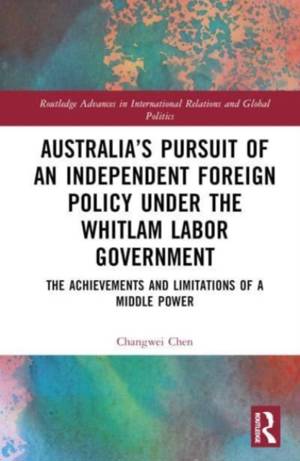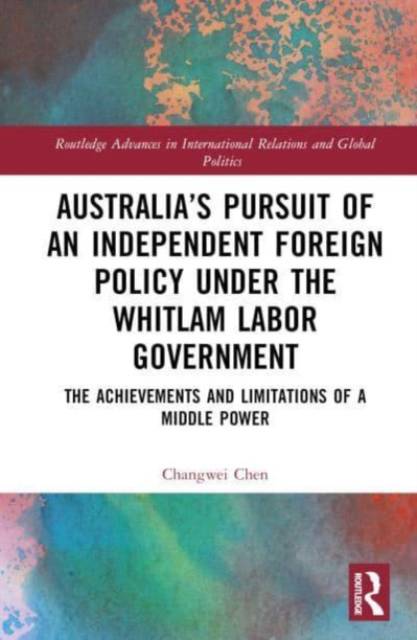
- Afhalen na 1 uur in een winkel met voorraad
- Gratis thuislevering in België vanaf € 30
- Ruim aanbod met 7 miljoen producten
- Afhalen na 1 uur in een winkel met voorraad
- Gratis thuislevering in België vanaf € 30
- Ruim aanbod met 7 miljoen producten
Australia's Pursuit of an Independent Foreign Policy Under the Whitlam Labor Government
The Achievements and Limitations of a Middle Power
Changwei ChenOmschrijving
Examining a series of episodes in Australia's foreign relations under Whitlam, the author pays attention to a broad range of hitherto insufficiently researched domestic and international issues in Australian's foreign relations of the early 1970s.
The election of the Whitlam-led Labor Government in December 1972 ushered in fresh ideas and audacious initiatives in Australia's foreign policy. Whitlam's approach was shaped by a vision of taking Australia forward to its "rightful" and "independent" place in the future of the Asia-Pacific region. They range from immigration policy and the abolition of appeals from Australian Courts to the Privy Council to such major international issues as the Anglo-American base in Diego Garcia, French nuclear testing in the Pacific and the Five-Power Agreement with respect to Malaysia and Singapore. He demonstrates how the pursuit of foreign policy independence repeatedly placed the Whitlam Government in a position wedged in between Australia's traditional allies and the Third World; and how it navigated Australia's national interests on a series of dilemma situations involving conflicting strategic interests between Australia and its traditional allies, and those between major powers and the non-aligned countries. The analysis presented in this book contributes to not only historical literature on the subject but also the understanding of how a middle power, like Australia, can navigate intensifying great power rivalry.
Essential reading for scholars of Australian foreign policy, as well as being an invaluable case study of middle power diplomacy in the Asia-Pacific region.
Specificaties
Betrokkenen
- Auteur(s):
- Uitgeverij:
Inhoud
- Aantal bladzijden:
- 216
- Taal:
- Engels
- Reeks:
Eigenschappen
- Productcode (EAN):
- 9781032461861
- Verschijningsdatum:
- 11/08/2023
- Uitvoering:
- Hardcover
- Formaat:
- Genaaid
- Afmetingen:
- 156 mm x 234 mm
- Gewicht:
- 503 g

Alleen bij Standaard Boekhandel
Beoordelingen
We publiceren alleen reviews die voldoen aan de voorwaarden voor reviews. Bekijk onze voorwaarden voor reviews.









